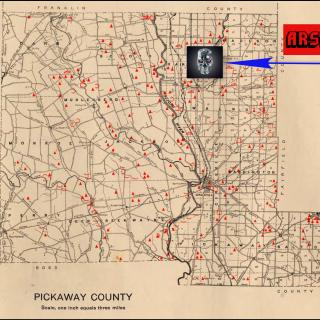Advertisement
Panic attacks are one of those things you hear about but think won’t happen to you, however they are actually more common than you would think and sadly women are twice as likely to have one as men. So how do you know if you are having a panic attack and what should you do if you have one?
Symptoms of Panic Attacks
A panic attack can take many forms but most people who suffer will say that they feel like they are dying or that it feels like a heart attack. They are terrifying to experience with a mixture of the following symptoms:
- Racing heartbeat
- Chest pain or tightness
- Shortness of breath and/or feeling of choking
- Feeling faint or dizzy
- Nausea
- Shaky limbs or trembling
- Hot flushes, chills or sweating
- Tingling in fingers, numbness of body, and/or pins and needles
Health blogger Adam Thornton, Essayroo and Paper Fellows, advises, “They last around 5 to 20 minutes and though frightening are not dangerous as they will not cause physical harm to you.”
These symptoms can be similar to other medical issues, so if you experience any of these it’s definitely worth going to see a doctor to check about them.
What Causes a Panic Attack?
So many people these days are dismissive of the notion of “trigger warnings” however they are a real concern for those with anxiety, PTSD etc. as they can throw them straight into an attack or flashback. You may suffer from panic attacks if you are going through a period of high-stress and instability, are in a cycle of negative thoughts or have past traumas that you need to deal with through therapy.
Some common issues people suffering from anxiety might find triggering includes exams, flying or crowds, but for many identifying these triggers comes much later and so panic attacks may feel like they have no apparent trigger.
What Should You Do if Having a Panic Attack?
“If you are having a panic attack the first thing you need to try and do is calm down, I know it’s easier said than done and nothing is worse for helping you relax than someone telling you to relax,” remarks Ellie Baldwin a journalist at Dissertation Writing and Boomessays.
When people first experience a panic attack they can have no idea what they are experiencing and worry they are dying or having a heart attack. This leads to the panic increasing making the attack worse and prolonging the symptoms.
Stop whatever you are doing during the attack and see if you can find a safe space to close your eyes and focus on your breathing. If possible stay exactly where you are. Try regulating your breath by breathing in for 3 seconds, holding for 2 seconds and then breathing out for 3 seconds. Take deeper breaths than normal in through the nose and out through the mouth. If you practise Yoga or Tai Chi you may be familiar with belly breathing, this is a very good way to help regulate your breathing in this moment.
Remind yourself that you are not dying and that this is a feeling that will soon pass. Set some mantras for you to use in times of panic and don’t try and fight back as this will potentially cause the attack to worsen. The common “this too shall pass” is an easy to remember if trite phrase that can be a good starting point.
Distract your brain, focus on positive memories and relaxing images. If you can, focus on something in eye line like a plant or item of furniture trying to catalogue its properties: texture, weight, size, shape etc. You are taking brain power away from that fight or flight response that causes panic attacks.
If you are witnessing someone having a panic attack try and give them space, try and get them to breath with you and distract them from the situation. Talk about something they care about or are interested in to take their mind away from the situation. Above all do not start panicking yourself as this can worsen the situation and just be kind.
For more professional help you should see your doctor to see about medication for long term sufferers and Cognitive Behavioural Therapy that can help you address and categorise dysfunctional thoughts that can contribute to panic.
What to Remember?
Remember that if you are experiencing panic attacks that you are not dying and if it helps know you are not alone, this is a surprisingly common experience that we are only now starting to understand better.
In the middle of an attack stop and try and regulate your breathing. Distract your brain from the situation by repeating positive mantras and focussing on items in eyesight. If you suffer regularly from panic attacks go see your doctor.
In the 5 to 20 minutes of experiencing a panic attack you may find yourself dizzy, out of breath and nauseas so try and sit still and remember you are not dying. Identify possible triggers with the help of therapy and look into Cognitive Behavioural Therapy in particular.
-------------------------------------------------------------
Development manager and writer Madeline Miller helps companies enter new markets and build long term relationships. She helps edit for sites like Academized and Assignment Service, and also writes on various topics for Personal statement writing service.



